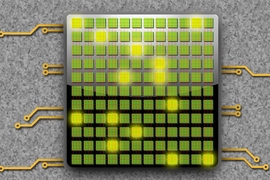A research group that includes Srini Devadas of MIT's Computer Science and Artificial Intelligence Lab (CSAIL) has received a National Science Foundation (NSF) Frontier Award, as part of nearly $75 million that the NSF’s Secure and Trustworthy Cyberspace program will spend on cybersecurity projects across the country, the foundation announced yesterday.
The project Devadas will work on, called Modular Approach to Cloud Security (MACS), aims to build information systems for the cloud with meaningful multilayered security. The team will design and test a modular approach to cybersecurity, building the system from smaller, separate functional components, with each asserting its own security individually. As a result, the security of the system as a whole will be derived from the security of its components.
Apart from Devadas, the team includes researchers from several institutions, including Boston University, the University of Connecticut, and Northeastern University. They are experts in different aspects of information security and cryptography. Devadas is the Edwin Sibley Webster Professor of Electrical Engineering and Computer Science at MIT, and a member of CSAIL’s Computational Structures Group.
A key component of the MACS project is its integration into the Massachusetts Open Cloud, which provides the research team with a testbed for deploying and testing the mechanisms they develop at reasonable scale.
In announcing the grant, the NSF said that the awards are intended to support “large, multi-institution projects that address grand challenges in cybersecurity science and engineering with the potential for broad economic and scientific impact.”
The MACS project also includes an education component, with plans to offer programs that familiarize technology professionals with cybersecurity and its central role in our society and economy. It will support new programs to introduce K-12 students to cybersecurity and computer science more broadly, targeting students from both under-represented minorities and students with exceptional academic potential.








